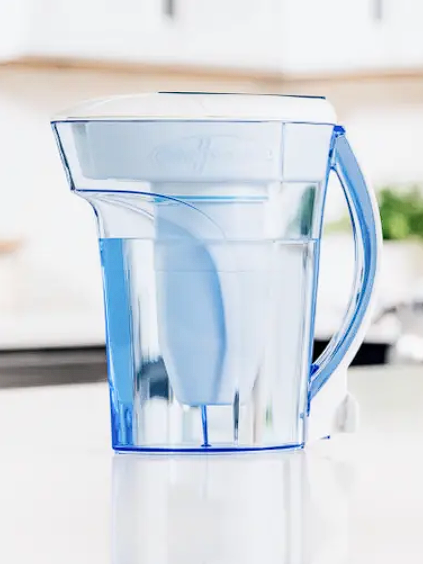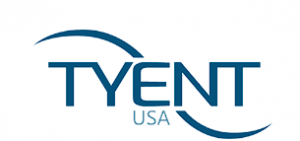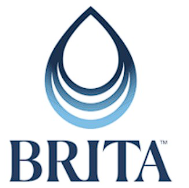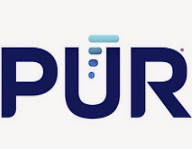Key Takeaways:
- ZeroWater removes nearly all Total Dissolved Solids (TDS), but at a cost. It strips beneficial minerals from water, making it similar to distilled or reverse osmosis (RO) water, which can impact long-term health.
- The short lifespan of ZeroWater’s frequent filter replacements drive up costs, especially in areas with hard water, leading to ongoing expenses of $390–$780 per year.
- The five-stage filtration process significantly reduces flow rate, making it inconvenient for quick access to clean water.
- ZeroWater’s 90-day warranty does not cover common issues that arise after prolonged use, frustrating many customers.
- Unlike ZeroWater, Tyent’s water ionizers remove over 200 contaminants while preserving essential minerals, providing better hydration and long-term value.
Clean drinking water isn’t a luxury—it’s a basic human need. Unfortunately, tap water can contain contaminants like lead, chlorine, and pesticides. A high-quality filtration system can eliminate these harmful substances and enhance water’s quality and taste.
It’s no surprise that many people turn to water filters to ensure safe hydration. Water pitchers are popular, but effectiveness varies by brand. ZeroWater claims to remove virtually all dissolved solids from water. But does it live up to its claims?
Tyent, a leader in water ionization and advanced filtration technology, offers a superior alternative to traditional water filters. With medical-grade filtration that removes over 200 contaminants while preserving essential minerals, Tyent’s water ionizers provide cleaner, healthier hydration.
In this review, we’ll take a deep dive into ZeroWater’s filtration system, analyzing its effectiveness, benefits, drawbacks, and how it compares to better alternatives like Tyent.
What is ZeroWater?
ZeroWater is a water filtration brand known for its five-stage filter system. Unlike standard carbon filters, ZeroWater’s technology is designed to eliminate almost all total dissolved solids (TDS), much like a standard RO water system. Its TDS meter is like an at-home water test, measuring water purity before and after filtration.
The company markets its system as producing “000” TDS water. That means there are no detectable dissolved solids in the water, resulting in a crisp, clean taste. However, this five-stage filtration strips beneficial minerals from the water that are essential for optimal health, and it makes the water slightly acidic. Acidic water can disrupt the body’s pH balance, potentially leading to acidosis, mineral deficiencies, and long-term health concerns.
ZeroWater Review
ZeroWater’s five-stage filtration system removes TDS from drinking water. The system features a TDS meter to verify water quality, but there’s more to water quality than TDS levels alone.
Products

ZeroWater’s product line focuses on the following basic filtration options:
- Pitcher filters: Standard 6-10 cup countertop pitchers
- Dispenser filters: Larger containers with spigot dispensers
- Faucet filters: Direct tap attachments for continuous filtering
- Replacement filters: Five-stage filters requiring frequent changes
Pros of ZeroWater
Here are some of the benefits ZeroWater offers:
- Reduces TDS to “000”: Eliminates virtually all dissolved solids
- Includes TDS meter: Allows users to check water quality before and after filtration
- National Sanitation Foundation (NSF) certified: Meets basic certification requirements for filtering out contaminants like heavy metals (iron, lead, mercury, etc.) and inorganic non-metals (chlorine, cyanide, fluoride, etc.).
- Simple setup: No professional installation required
- Filter recycling program: Company accepts used filters for recycling
Cons of ZeroWater
ZeroWater’s limitations create ongoing challenges, including:
- Short filter lifespan: Filters require frequent replacements, especially with hard water
- Removes beneficial minerals: Strips calcium, magnesium, and other essential nutrients, making it as unhealthy as distilled water
- Creates slightly acidic water: Lacks mineral balance, affecting overall hydration
- High ongoing costs: Replacement filters cost between $15 and $20, and most users replace them every 2-4 weeks, leading to additional annual expenses of $390–$780
- Limited warranty: Offers only 90 day warranty, failing to cover long-term issues
- Slow filtration speed: Water takes 3-5 minutes to filter completely
ZeroWater Pricing
ZeroWater’s pricing structure includes higher costs compared to basic pitcher filters. A standard ZeroWater pitcher starts at $20, while some of their premium models run up to $50. Large-capacity dispensers range from $40 to $80.
Ongoing costs add to the expense of ZeroWater use—each replacement filter costs $15 to $20, and multi-packs run $30 to $80. The filter’s lifespan depends on your water quality—most users need replacements every 2-4 weeks, resulting in significant annual expenses.
While ZeroWater offers subscription options for filter replacements, the frequent replacement schedule and limited warranty coverage make the long-term investment considerable. The 90-day warranty period doesn’t protect against common issues that emerge after extended use.
ZeroWater Customer Reviews
Customer feedback about ZeroWater reveals clear patterns. The initial experience often differs from long-term satisfaction rates, and there’s a distinct divide between first impressions and sustained usage.
Their 90-day warranty doesn’t cover common issues after the first few months, and the replacement costs don’t stop adding up. While ZeroWater filters eliminate TDS, the ongoing expenses and maintenance requirements cause much frustration.
1. Tyent

Tyent water ionizers produce alkaline and hydrogen water while preserving beneficial minerals. The innovative, unmatched filtration system can filter over 200 contaminants in tap water using medical-grade Dialipure filters—the same technology used in kidney dialysis machines.
Features:
- Offers under-counter and above-counter ionizers
- Removes over 200 contaminants using Dialipure medical-grade filtration technology
- Features a lifetime warranty with no stipulations
- Includes a 75-day trial period and zero-interest financing
Cons:
- Higher upfront investment
- Professional installation recommended for under-counter models
Pricing:
- UCE-13 PLUS: $6,995
- ACE-13: $5,995
- H2 Hybrid: $5,995
- EDGE-9000T: $3,495
https://www.tyentusa.com/pages/ionizers
2. Brita

Brita offers basic carbon filtration for chlorine and certain metals. Their filters provide a basic level of treatment, reducing contaminants like lead, chlorine, and benzene, but without the advanced purification of higher-end systems.
Features:
- Carbon filtration reduces chlorine, lead, and benzene
- Pitchers are inexpensive and available at most grocery and big box stores
- Filter lifespan lasts 2-6 months, depending on water quality
Cons:
- Contaminant removal is not as comprehensive as other systems
- Short 90-day warranty with no extended trial period
Pricing:
- Denali Water Pitcher: $22.99
- Tahoe Water Pitcher: $41.99
- Brita Large 10-cup Pitcher: $43.89
- Champlain Water Pitcher: $36.99
3. PUR

PUR uses standard carbon and ion exchange filtration to treat common contaminants in water. If your tap water smells like chlorine, this system claims to be able to reduce chlorine taste and certain heavy metals.
Features:
- Uses carbon and ion exchange filtration to remove common contaminants
- Pitchers and faucet attachments are affordable
Cons:
- Filters last only 1-2 months, requiring frequent replacements
- Slow filtration speed means water takes longer to filter through
- Only a 1-year limited warranty with no satisfaction guarantee
Pricing:
- 7 cup pitcher: $16.99
- 11 cup pitcher: $24.99
- 12 cup pitcher: $33.97
4. LifeStraw

LifeStraw’s portable personal filters can be used as travel products or for clean water access
- Not designed for daily home use
- Limited heavy metal removal abilities means it’s ineffective against certain contaminants
- Only a 1-year warranty with no return policy
Pricing:
- LifeStraw: $17.47
- LifeStraw tumbler: $49.95
- LifeStraw home high-capacity dispenser: $85.95
Learn More About ZeroWater Filters
Here we address the most common questions about ZeroWater filters and what you need to know about water filtration performance.
What makes ZeroWater taste bad?
Expired filters and poor maintenance cause ZeroWater filtration systems to produce bad-tasting water. When filters reach capacity, they can’t eliminate contaminants. The result is a metallic or sour taste due to low water pH levels. This calls for regular filter replacements, but they’re not cheap.
Bacteria and mold build up inside pitchers that aren’t regularly and properly cleaned, which can also cause the water to taste odd. Leaving water in ZeroWater containers is not recommended, as it contributes to the formation of a strong, unpleasant plastic-like taste that’s hard to ignore.
Is it healthy to drink ZeroWater?
While ZeroWater removes contaminants, it also strips away beneficial minerals your body needs for optimal health, making it just as dangerous as reverse osmosis systems. The filtration process creates slightly acidic water low in calcium and magnesium—two minerals pivotal for your health and well-being.
Drinking demineralized RO water or water filtered by ZeroWater systems affects your body’s electrolyte balance and hydration levels. Without proper hydration or electrolyte levels, you may experience muscle cramps, fatigue, weakened bone health, and a higher risk of acid buildup in the body, which can contribute to long-term health issues.
Tyent water ionizers offer a healthier alternative by delivering ultra-clean, mineral-rich alkaline and hydrogen water. Unlike ZeroWater, which strips essential nutrients, Tyent’s advanced filtration system removes over 200 contaminants while preserving beneficial minerals like calcium, magnesium, and potassium—key elements for hydration, bone strength, and overall wellness.
Tyent’s ionized water is also infused with molecular hydrogen, which has powerful antioxidant properties that offer health benefits like combatting oxidative stress, reducing inflammation, and improving cellular hydration. By maintaining an optimal pH balance and delivering superior hydration, Tyent water supports long-term health and energy levels in ways that standard filtration systems simply can’t.
Experience the difference with Tyent’s cutting-edge water ionizers.
Is ZeroWater really better than Brita?
ZeroWater uses five-stage filtration to remove dissolved solids. Brita uses carbon filters for chlorine and some metals. Both systems have limitations. ZeroWater’s complete TDS removal isn’t always beneficial—your body needs certain minerals found in water.
Brita, while more affordable and convenient, has its own drawbacks. Its carbon filters primarily target chlorine, some heavy metals, and a few common contaminants, but they are not as effective at removing a wide range of impurities, such as fluoride, bacteria, and volatile organic compounds (VOCs).
The best water filtration systems, like Tyent’s water ionizers, remove harmful contaminants while preserving beneficial minerals, ensuring both purity and optimal hydration. Tyent’s advanced filtration technology eliminates over 200 contaminants—far beyond what standard filters can achieve—while maintaining essential nutrients.
Tyent’s ionized water is infused with molecular hydrogen, which supports antioxidant defense, improves cellular hydration, and promotes overall wellness. Unlike Brita and ZeroWater, Tyent delivers clean, mineral-rich, and pH-balanced water, offering a superior hydration experience.
Upgrade to Tyent’s industry-leading water ionizers now.
Does ZeroWater actually work?
Yes, ZeroWater removes contaminants through its five-stage filtration process. However, its filters clog quickly, resulting in slow water flow and frequent replacements, which is a costly expense over time. Additionally, while ZeroWater eliminates nearly all dissolved solids, it also strips essential minerals like calcium, magnesium, and potassium—nutrients that play a vital role in hydration, bone health, and overall wellness. This results in slightly acidic, demineralized water that may not support optimal health.
A more sustainable and effective solution is a system that removes harmful contaminants while preserving essential minerals. That’s where Tyent’s advanced water ionizers come in. Tyent’s medical-grade filtration technology, similar to that used in kidney dialysis machines, eliminates over 200 contaminants. It also maintains the minerals your body needs for proper hydration and overall well-being.
With a lifetime warranty and a 75-day risk-free trial, Tyent delivers a superior hydration experience without the ongoing costs and limitations of ZeroWater.
Make the switch to healthier water today with Tyent.
Discover the best ZeroWater alternatives
Water quality matters because it plays a major role in helping you stay optimally hydrated and healthy. While ZeroWater removes TDS and may seem like a viable filtration brand at first glance, closer inspection reveals a different story. Their filtration process eliminates beneficial minerals for your health, and the need for frequent, costly filter replacements makes it an expensive option in the long run.
For peace of mind and no hidden costs, explore Tyent’s water ionizers instead. With cutting-edge filtration that removes over 200 contaminants while preserving essential minerals, Tyent water ionizers deliver alkaline, hydrogen-rich water that supports superior hydration, antioxidant protection, and optimal pH balance.
Plus, with a lifetime warranty, 75-day risk-free trial, and zero-interest financing, Tyent offers a long-term, cost-effective solution for the cleanest, healthiest water right in your home. Reserve your access to clean, mineral-rich water at all times and experience the perks of advanced filtration technology and superior filters in the comfort of your home.
Learn more about Tyent’s 75-day trial and zero-interest financing plan today.

![11+ Best Sediment Water Filters [2025] Screenshot 2024-12-02 095415](https://www.tyentusa.com/blog/wp-content/uploads/2024/12/Screenshot-2024-12-02-095415.png)
![8+ Best Water Remineralization Filters [2025] Screenshot 2024-12-02 230857](https://www.tyentusa.com/blog/wp-content/uploads/2024/12/Screenshot-2024-12-02-230857.png)
![The Dangers of Reverse Osmosis Water [2024] hydrogen water](https://www.tyentusa.com/blog/wp-content/uploads/2020/08/Screenshot-2024-09-08-083127.png)